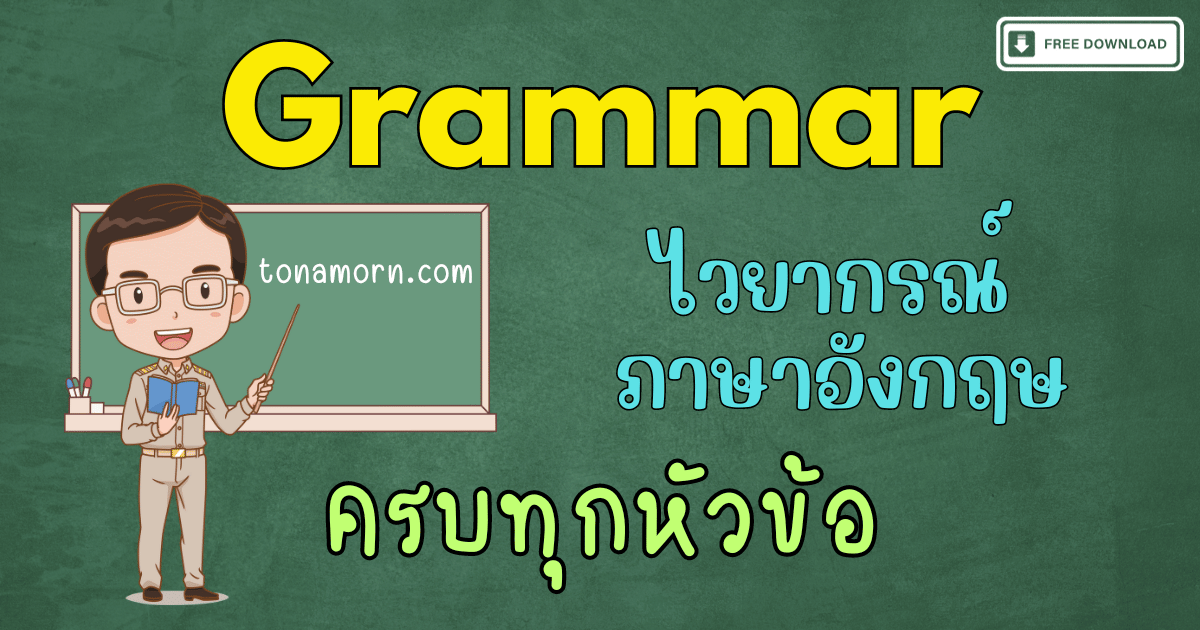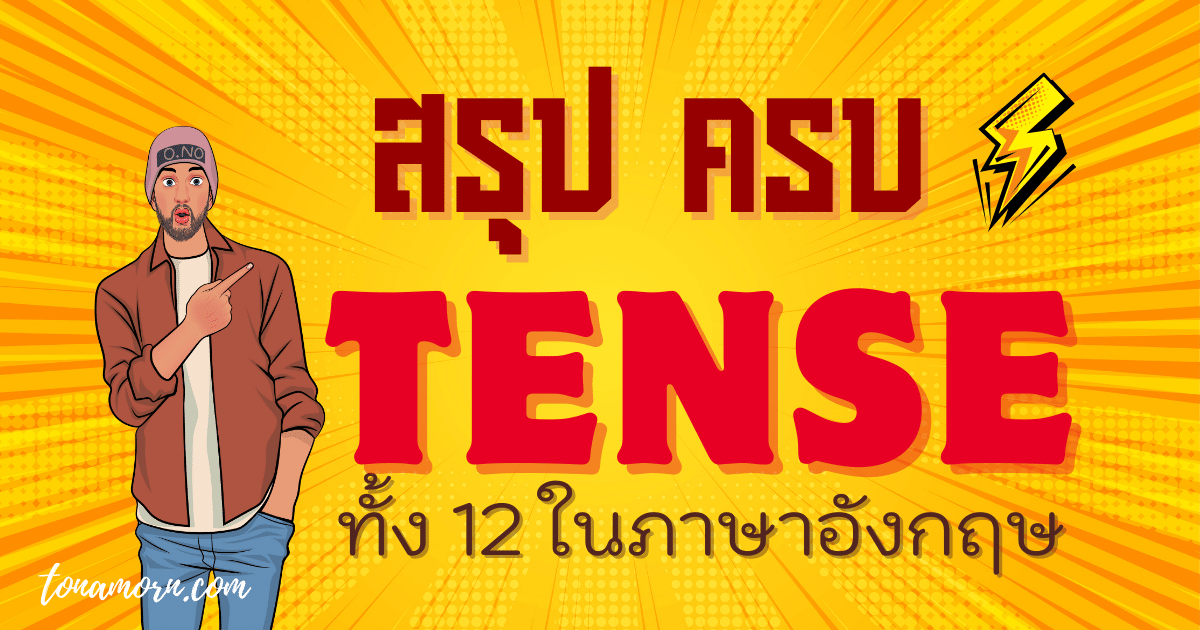สรุปการใช้ Main Clause และ Subordinate Clause
Main Clause and Subordinate Clause Clause สามารถแบ่งได้เป็น 2 ประเภทใหญ่ๆ ดังต่อไปนี้ [...]
Main Clause and Subordinate Clause
Clause สามารถแบ่งได้เป็น 2 ประเภทใหญ่ๆ ดังต่อไปนี้
1.Main Clause หรือ Independent Clause คือ ประโยคใจความหลัก มีความสมบูรณ์ในตัว ประกอบด้วยประธานและภาคแสดง (Subject and Predicate)
2.Subordinate Clause หรือ Dependent Clause อนุประโยคคือประโยคที่ไม่มีความหมายสมบูรณ์ในตัวเอง โดยปกติจะใช้ประกอบ Main Clause เพื่อขยายหรืออธิบาย Main Clause ให้มีแต่ความสมบูรณ์ครบถ้วน ประโยค Subordinate Clause สังเกตง่ายๆ คือจะขึ้นต้นด้วยคำสันธาน Subordinating Conjunction
ตัวอย่างเช่น because, if, when, unless, as soon as, until, while, whereas
ตัวอย่างประโยค
You will need a password if you subscribe to this online service.
(You will need a password – Main Clause, if you subscribe to this online service – Subordinate Clause)
Subordinate Clause มี 3 ชนิดโดยแบ่งตามหน้าที่ได้ดังนี้
1.Noun Clause นามานุประโยค คืออนุประโยคที่ทำหน้าที่เหมือนเป็นคำนาม ซึ่งหมายความว่ามันจะเป็นประธานของกริยา กรรมของกริยา หรือกรรมของบุพบทก็ได้
ตัวอย่างประโยค
I know when she will arrive.(when she will arrive – Noun Clause เป็นกรรมของกริยา know)
I am concerned about when she will arrive. (when she will arrive – Noun Clause เป็นกรรมของบุพบท about)
When she will arrive is not important. (Noun Clause – เป็นประธานของกริยา is)
Noun Clause ขึ้นต้นด้วยคำต่อไปนี้
Question words ซึ่งได้แก่ what, where, when, why, which, who, whom, whose, how แล้วตามด้วย Subject + Predicate เหมือนประโยคบอกเล่า
ตัวอย่างประโยค
I could not hear what she said.
Where she lives is not far from my place.
I am wondering why the sky is blue.
whether, if แปลว่า …หรือไม่ มักใช้คู่กับกริยา no, wonder
ตัวอย่างประโยค
I don’t know whether she will come.
that แปลว่า ว่า เมื่ออยู่หลังกริยา ตัวอย่างเช่น say, insist, think, know, promise และในกรณีนี้ สามารถละ that ในประโยคได้ และจะแปลว่า การที่ หรือ ที่ว่า เมื่อทำหน้าที่เป็นคำนาม
ตัวอย่างประโยค
I think that she is a good singer.
I know (that) she is a good girl.
2.Adjective Clause คุณานุประโยค หรือเรียกอีกอย่างหนึ่งว่า Relative Clause คือประโยคนั้นทั้งประโยคทำหน้าที่เป็น Adjective ขยายคำนามที่อยู่ข้างหน้า ซึ่งลักษณะของ Adjective Clause นั้นจะต้องขึ้นต้นประโยคด้วย Relative Pronoun ต่อไปนี้ which, where, when, why, who, whom, whose, of which และ that
ตัวอย่างประโยค
Jimmy read the book that I gave him.(Jimmy read the book – Main Clause, that I gave him – Adjective Clause ขยายคํานาม book)
ประโยค that I give him ไปขยายคำนาม คือ book เพื่อให้รู้ว่าเป็นหนังสือเล่มที่ผมให้เขาไป ในประโยคนี้เราสามารถใช้ which แทน that ได้
A politician who is trustworthy has the support of the people. (who is trustworthy – Adjective Clause ขยายคำนาม politician)
ประโยค who is trustworthy ไปขยายคำนาม politician เพื่ออธิบายให้รู้ว่ามีลักษณะน่าไว้วางใจ
Spring is the season when everything blooms.(Spring is the season – Main Clause, when everything blooms – Adjective clause ขยายคำนาม season)
ประโยค when everything blooms ไปขยายคำนาม season เพื่ออธิบายว่าฤดูนี้มีลักษณะเป็นอย่างไร
3. Adverbial/Adverb Clause วิเศษณานุประโยค คือประโยคซึ่งทำหน้าที่เหมือนกริยาวิเศษณ์ หรือ Adverb ทั่วๆไป คือไปทำหน้าที่ขยายกริยาในประโยคหลัก Main Clause มักขึ้นต้นด้วยคำสันธานดังต่อไปนี้
as, as if, as though, as far as, as near as, when, while, since, as, before, after, until, as soon as, as long as, because, since, seeing that, now that, in order that, for the purpose that, for fear that, although, though, even though, even if, so that, so…that, such…that, in case, if only, unless, whether, supposing that, provided that, on condition that
ตัวอย่างประโยค
The poor women had no money because she had lost her job.
(The poor women had no money – Main Clause, because – Subordinating Conjunction, because she had lost her job – Adverbial Clause)




